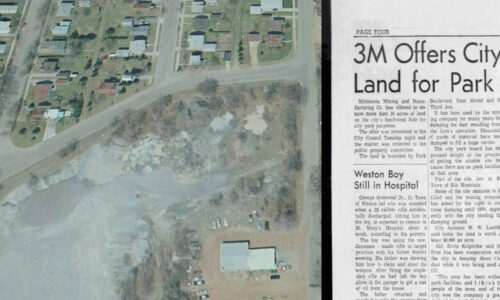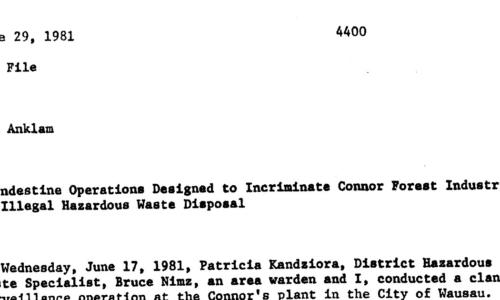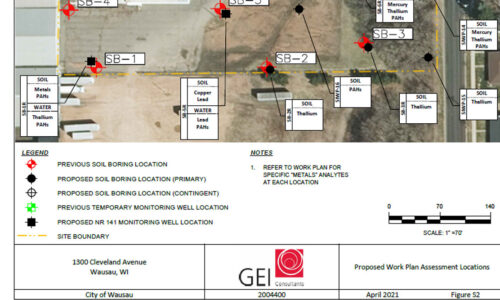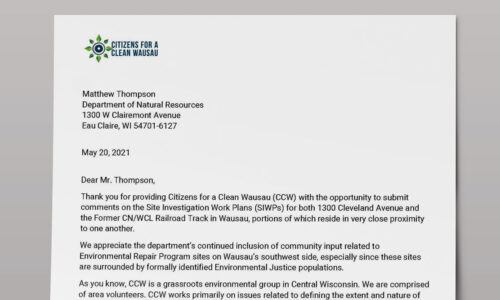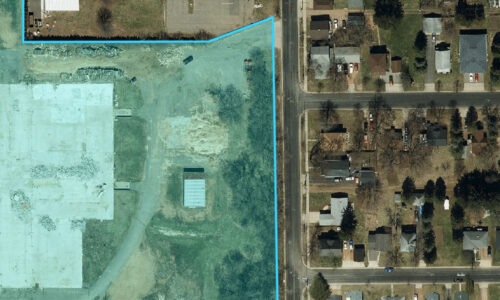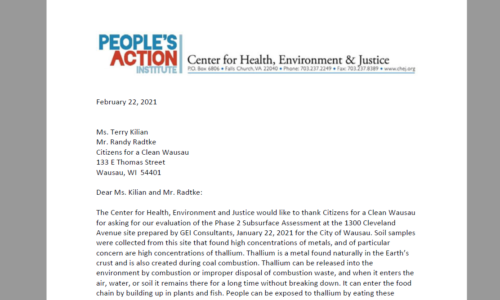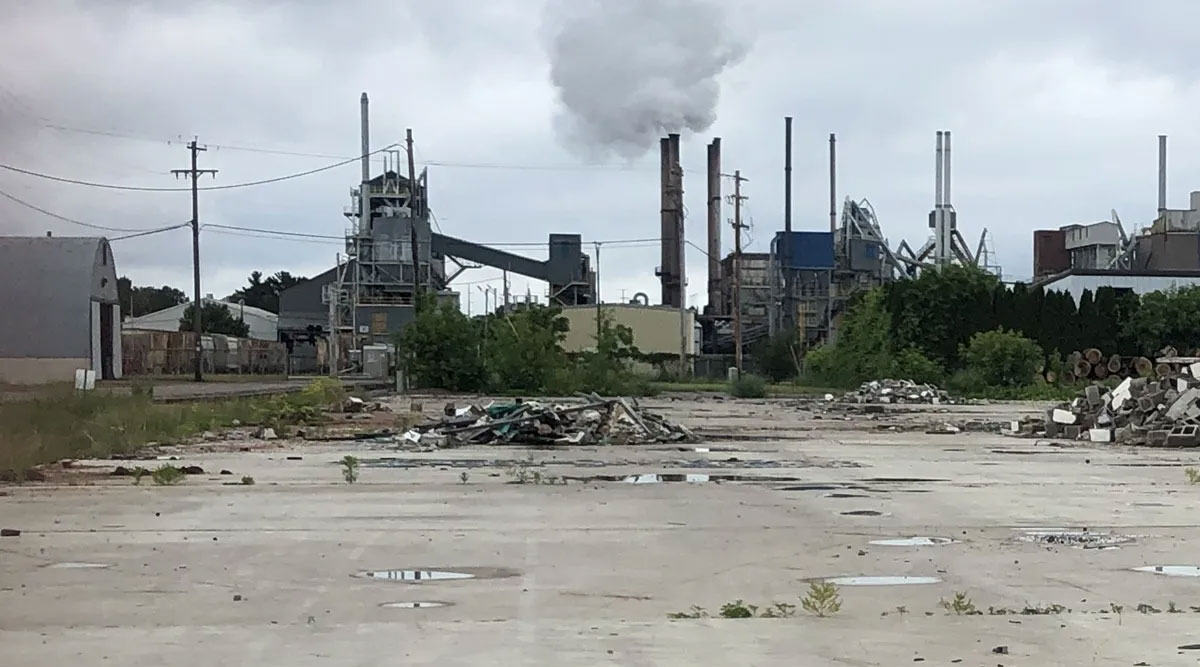
City of Wausau to Apply for EPA Remediation Grant for 1300 Cleveland Ave.
- 1300 Cleveland Avenue, Arsenic, DEHP, EPA, PAHs
- October 29, 2022
The EPA Brownfields Cleanup Grant Would Assist with Costs to Remediate Longstanding, Widespread Site Contamination
At its October 25, 2022 meeting, the Wausau City Council voted unanimously to approve a proposal from GEI — the City’s environmental consultants — to prepare and submit an application for a U. S. Environmental Protection Agency Brownfields Cleanup Grant for 1300 Cleveland Avenue on Wausau’s southwest side. According to EPA grant information, the application submission deadline is November 22, 2022.
A Site Investigation Report (SIR) for 1300 Cleveland Avenue submitted to the DNR by GEI detailed multiple contaminants of concern in the site’s soil that were identified through testing and analysis, including Polycyclic aromatic hydrocarbons (PAHs), Bis(2-ethylhexyl) phthalate or DEHP, and Arsenic.
Due to detection of PFAS in the site’s soil, the DNR requested that groundwater testing occur for PFAS, and the October 25, 2022 city council resolution and vote also approved a budget for supplemental site investigation to do so. 1300 Cleveland Avenue is currently the only result for a search of Marathon County sites for PFAS contamination on the DNR’s Bureau for Remediation and Redevelopment Tracking System (BRRTS) on the Web.
Contaminated Site’s Close Proximity to Residential Yards
Wausau District 3 Alderperson and a Citizens for a Clean Wausau member, Tom Kilian, brought the EPA grant information to the City Finance Committee’s attention on September 13, 2022, and strongly urged the City to apply in order to facilitate rigorous remediation to non-industrial standards for the site while reducing the cost to the municipality. Public records show that Kilian had inquired with City staff earlier in September 2022 as to why City committees or the alderpersons on the southwest side had not been notified of the relevant EPA grant opportunities.
As the alderperson for the district in which the site resides and due to the extreme proximity of the site to residential yards, Kilian wrote a formal letter to the DNR on July 21, 2022 urging the department to require protective, rigorous remediation to the fullest extent possible under the state’s current statutory and regulatory framework:
“From my perspective, it is the department’s responsibility (and within both its current discretion and statutory authority), along with other state agencies, to ensure that – whether through acts of omission or commission – further unnecessary, disproportionate harm does not come to the residents immediately surrounding this site.”
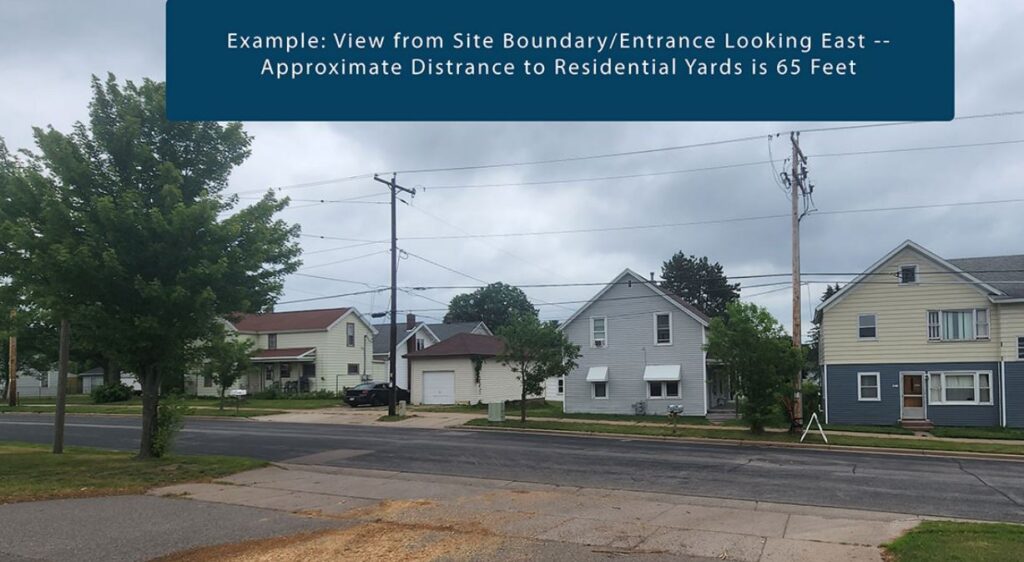
Wisconsin DHS Public health Conclusions Regarding the Onsite Contaminants and Neighboring Residential Areas
In July 2021, a toxicologist for Wisconsin’s Department of Health Services (DHS) stated that there “could be a public health hazard present if very young children are consistently on site due to thallium levels found in soil onsite” and noted that the “potential for offsite impacts to the neighboring residential areas represents an indeterminate public health hazard due to the lack of sampling data in those areas.” The DHS letter from Dr. Brita Kilburg-Basnyat, PhD about 1300 Cleveland Avenue can be found here.
Despite potential offsite impacts being considered an “indeterminate public hazard” due to the lack of soil sampling offsite, and multiple requests to government from members of the neighborhood and local community to complete such offsite testing, none has been planned or completed to date.
“Riverside Park 2.0”
It has been over three years since Wausau’s last mayor called citizen concerns about environmental issues at 1300 Cleveland Avenue “much ado about nothing.” In the time following the statement, residents continued to push for the site to be tested. After testing and analysis finally ensued, high concentrations of contaminants were found in the Cleveland Avenue property’s soils prompting the DNR to send the City of Wausau a Responsible Party letter requiring investigation and cleanup of the site.
The history is not dissimilar to the City’s Riverside Park dioxin debacle in which it fought resident requests for years to further test the soil in the park. Following soil testing that ultimately occurred, the City is now required to remediate the park soil under DNR oversight and significant excavation will occur in the near future.
Citizens have continued to push for the most rigorous remediation at 1300 Cleveland Avenue, a site that is zoned residential and is in a densely populated residential neighborhood. Residents and their representatives have had to repeatedly call out numerous “errors” and irregularities in the 1300 Cleveland Avenue City process related to zoning, cleanup standards, and future reuse of the property. The pushback from City Hall to residents’ strong concerns related to the southwest-side property and the similarities to the problematic government response with the neighborhood park have led some in the community to consider and characterize 1300 Cleveland Avenue as “Riverside Park 2.0.”
